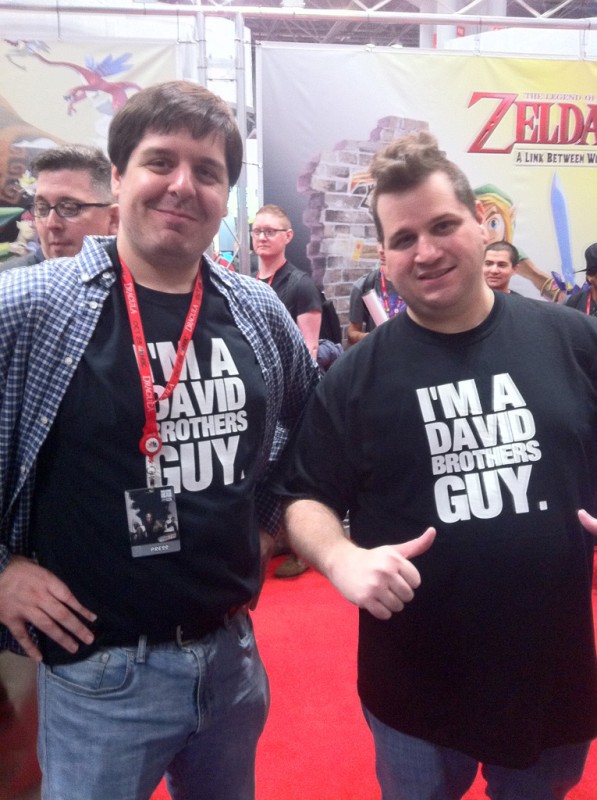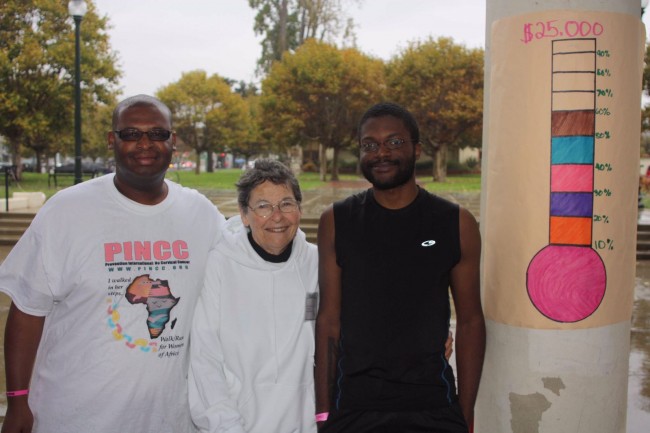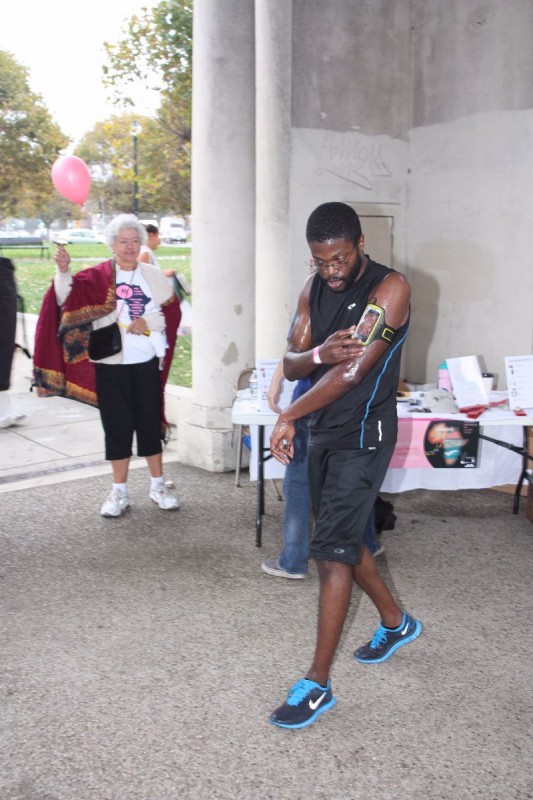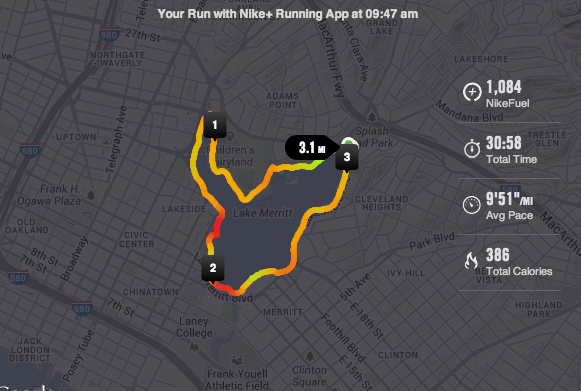I’ve got a rep.
Actually, I have several reps depending on who you’re talking to, and some of them are actually pretty cool, but the one that always bugs me is my rep for being negative or pushy. I bristle at that description in part because I think it unfairly turfs the vast majority of stuff I’ve written in favor of focusing on a small aspect of my work. And yeah, I have gotten in fights and damned things I thought were worthy of eternal damnation and being removed from the sight of God forever and ever amen. I freely and proudly own that. But the entirety of what I write about, my “body of work” if I can sound like a real writer for a moment, feels overwhelmingly positive to me. But that’s my rep, amongst a certain group of people: negativity.
I know why this is my rep. Spending five years writing about the intersection of black culture and comics every day for a month doesn’t really get links, and neither does writing about how much I like Katsuhiro Otomo or Frank Miller. But pointing out that a comic has some mildly racist undertones or is tone deaf in some way? Hoo boy does that get people talking. So if they see that, but not the other stuff, I can’t really blame them for how they perceive me. They only know me that part of me.
It still grates, because I spend a lot of time thinking about how I approach writing, especially racial issues. You’d be hard-pressed to find anybody in comics I’ve called a racist. I spent a long time only associating that word with acts, not specific people. That was a purposeful choice on my part. I know how people—white people, specifically—react to the word “racist,” so I’ve avoided it. I’ve made sure to structure my arguments in such a way that they weren’t purely inflammatory or pointlessly insulting, included context and history and excuses and disclaimers and things that would soften the blow of saying, “Hey, this thing you did? It’s ugly and hateful and you should be ashamed of yourself for even thinking it.” I mean, count how often I’ve cussed here on 4l!—less than fifteen times since 2005, probably? I do quote a lot of rap songs, though, so maybe it evens out. Anyway.
I did and do that extra legwork because of how I was raised and who I am. I mentioned on tumblr the other day that I’m worried I might have a near-pathological fear of being seen as an Angry Black Man. That’s because I learned that Angry Black Men are someone to be avoided, someone that’s easily discounted and dismissed because he represents loudness or anger, instead of knowledge or power. I didn’t want to be that guy. I want to be taken seriously. It’s an insecure stance, but it’s one I can’t shake.
I bite my tongue a lot, I take great pains to avoid a certain type of offense even when throwing a jab, and it doesn’t work, because I don’t get to decide how people feel about me. They’re gonna feel however they’re gonna feel, and if that’s going to affect my personal and professional lives…been there, done that, and came out the other side with twin middle fingers, a mean mug, and a bad mood. But the idea that I can’t control the reaction to my work is a hard lesson to learn and an even harder one to internalize. I’m still not there yet, so I balk whenever I see it.
This thing, biting my tongue to avoid offense, is part of a concept called “respectability politics.” This recent post by Maurice Dolberry is a good primer. The short version is that respectability politics is a system in which you sand down your rough edges (pull up your pants, cut your hair, erase your accent, dress differently) in order to appeal to the majority. In America, that means white men, nine times out of ten.
It’s common, super common, and I can’t really blame people for buying into it. If you don’t have power, you don’t want to alienate those with power, because that just makes your life worse. Respectability politics argues that you should hide your light under a bushel because it might make somebody who doesn’t know you and will never care about you turn up his nose. It makes sense, because it’s basically “A spoonful of sugar helps the medicine go down.” But it still doesn’t do any good, because it requires a level of control and equality (in power, in position, in dialogue, in society) that simply doesn’t exist. Respectability politics blames the powerless for their powerless status irregardless of history, and prioritizes the comfort of others over your own personal comfort.
You can’t win. The only thing you’re doing is diminishing yourself at the unspoken behest of someone else. It’s a “love me please” that tends to fall on deaf ears.
A few weeks back, I let a young black dude use my phone on BART. After I handed it over to him, he laughed and said that he knew he had to ask me, because none of the white folks around us would have let a young black guy hold their phone. “You know how that go,” he said, and I laughed, because I do. Some of them would have, but for the most part? Even money on a very high chance of getting a rude response.
A big part of being black in America is being constantly aware of how your blackness affects others. It’s being aware that you might could get away with something in one situation, but you’d get murdered trying that same thing in another situation. The guy knew he could ask me because, even if I still had a bunch of internalized racism (I do, it’s killing me inside), there’d still be a good chance I’d have a voice in the back of my head telling me I’m the same as him and should treat him properly. Our shared experience of being suspicious first, of being not-normal, was what made that transaction possible. I’ve been on both sides of similar interactions with other black folks, both out here in Oakland and in Georgia.
I got a flat tire on my bike last week, so I had to take to riding the bus to and from work until I was ready to fix it. One morning, while walking to the bus stop, I saw a car at a stop sign with the hood up. I looked in as I walked past and there was a lady just sitting in there, doing nothing, but obviously upset. Her car’s busted, it’s pushing 0900 so she’s probably late for work, that’s a bad scene.
My bus stop was across the street from her, catty-corner, but close enough that I could see her sitting in the car at the sign and watch as cars paused in confusion before looping around her. I got to the stop early (full disclosure: late for the bus I wanted, early for the bus I settled for) and I had plenty of time and nothing to do but look around.
I saw that there was space for her car in a red zone just around the corner, maybe 15 feet away from where she was. It’d take her out of traffic, it’d be less embarrassing (I’ve been stuck in traffic with a busted car—it’s awful, especially if you don’t know how to or cannot fix it), and it’d be safer when whoever she called showed up to help her. I had ten minutes on the bus, and I could’ve easily pushed her car over there for her. I’ve done it before for friends and family. It’s easy. It would have taken longer to convince her to let me push her car than it would to get it where it needed to be, particularly since she was at the bottom of a hill, but still on the incline.
But again: I’m very aware of who I am and where I am. Strange black dude knocking on her car window in a moment of distress? Maybe it would’ve been okay. But as a counterpoint, my beard’s mad scruffy lately, my hair’s slowly getting longer, and I was probably in a t-shirt, jeans, and a backpack, because waking up blue means just throwing on clothes that sorta match and leaving the house. I was dressed “regular black guy,” not “respectable black guy with a decent job,” and a lot of times, “regular black guy” is not good enough to avoid people looking at you as a threat.
I had to choose whether or not doing something to help someone, which wouldn’t have involved going out of my way or anything resembling actual work, was worth the risk of getting dissed and dismissed first thing in the morning, whether that was a curt “no thank you” without eye contact or her jumping in fear when I tapped on the window.
I chose to go to work.
Renisha McBride was murdered in Dearborn Heights in MI recently. She had a car accident and was walking door-to-door looking for help. She knocked on a door, the man inside saw her and recognized a threat, and shot her in the head. She was nineteen and unarmed. He has not been charged, and the prosecutor’s office says they need more information before they decide to file charges.
Jonathan Ferrell was murdered by the police. In a cruel twist of fate, he had also experienced a car accident and was looking for help. He went door-to-door, looking for it. A woman opened the door, thinking it was her husband, realized it wasn’t, slammed it shut, and called 911 to report a home invasion. The cops arrived, Ferrell ran to them, and was tased, shot, and killed. The charge is voluntary manslaughter, and the cop who killed him is free to walk the streets after posting bail. Ferrell was twenty-four, unarmed, and had been in a wreck so bad he apparently had to crawl out of the back window.
These are recent incidents, but they are far from uncommon. These situations? These are my mother’s worst nightmare. A lot of what she taught me—including the respectability politics—was delivered with the intent of preventing my early and sudden death or a trip to prison. Like anyone else, I have a right to my anger, to my frustration, but I know that that frustration, no matter how eloquently I express it, will be seen read differently than anger from a white man or white woman, and I will be treated as more dangerous by default. It’s not my fault—it’s the result of centuries of white supremacy—but I have to live with it.
ComicsAlliance EIC Joe Hughes tweeted some things recently that were the truest tweets ever wrote:
Renisha McBride was shot in the back of the head for the crime of being a black woman who asked for help in a white town. She was 19.
We won’t talk about it enough. The story won’t go viral. Because as much as this country hates black men, it hates black women even more.
I doubt Jonathan Ferrell’s family will ever actual know justice, but at least we TALKED about his story. I doubt Renisha will get even that.
Every day I fear being shot to death while unarmed, my family going through a media circus that ultimately leads to nothing. Every day.
And so I’ll sit here and fear for my life, and my sister’s. And I’ll feel horrified and enraged for Renisha McBride’s family.
And when I’m done working, I’ll head home and hope to god that no one shoots me dead, knowing full well that they’d get away with it.
And somewhere, my sister will do the same. Because that’s what we do. Every day.
This is real life. This is truth. It sounds like paranoia, but paranoia suggests irrationality, or that you’re at fault. This is fear, and more than that, justified fear. If there’s a shooting near my area, or near places she knows I frequent, Mom will email me to make sure I’m okay. She knows that white America hates black bodies, and that colored life isn’t worth too much. She shouldn’t have to live under that burden. We shouldn’t have to live under that burden.
Killer Mike, one half of the duo Run the Jewels with El-P, said this on their cut “DDFH” (“do dope, fuck hope”):
Cops in the ghetto, they move like the gestapo
Drunk off their power and greed, they often hostile
My lil’ homie talked shit back and they beat him bad
That boy in the hospital now, he lookin’ bad
and I’m with his mama and dad, we lookin’ sad
My own mama called me said, “Baby, I’m just glad
“They ain’t put they hands on my child and kill his ass
“Please don’t rap about that shit ‘fore they murder yo’ black ass!”
And this situation is fictional, it’s storytelling raps, but every line of it is drawn from real life.
Vince Staples on “Versace Rap:”
I asked my mama what’s the key to life, she told me she ain’t know
She just try to take it day to day, and pray I make it home
I don’t quote these songs to prove a point so much as to illustrate how we think about the fact that we can get dropped any day of the week. Some of it is typical parental concern, but there’s a morbid edge, a fatalism, tucked in there. We prepare for this, train for it, because it is a real enough possibility that we worry about it. And in that sense, we accept it. We reject the violence, we reject the post-death smear campaigns that always follow, but we accept the reality of the situation, which is that we might just get killed by the people who are theoretically responsible for our safety or total strangers who fear our skin. Sometimes it’s glib, a lot of times it’s a joke, but underneath the gallows humor is the truth: “Please, God: any one but me or mine.”
Respectability politics are a self-defensive move. I modulate my self. I avoid police as a general rule, I avoid the appearance of wrongdoing, and I’m very careful and discreet when doing something I know I shouldn’t in a way that none of my white friends have ever been. I don’t ever lose my temper in public, I’m polite, and I’ve never thrown the first punch.
But it’s gonna be what it’s gonna be. I can’t fix any of this. I can’t make anyone feel better. This is the kind of problem that manifests itself in major and minor ways. You could get murdered for being black or dissed in a store. Both results are unacceptable to me. But all I can do is try to figure out how to survive and steal a little happiness for myself without simultaneously diminishing myself.










